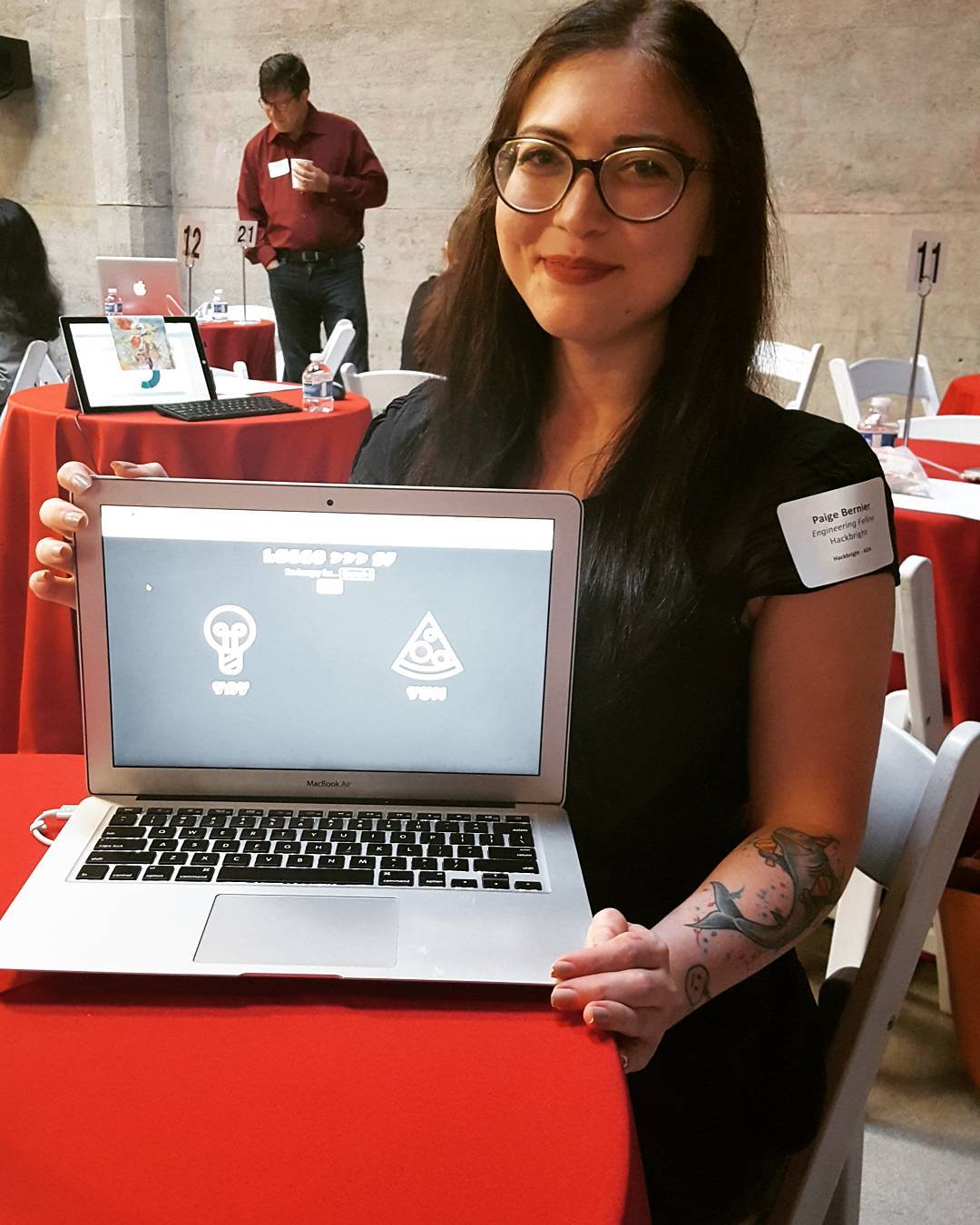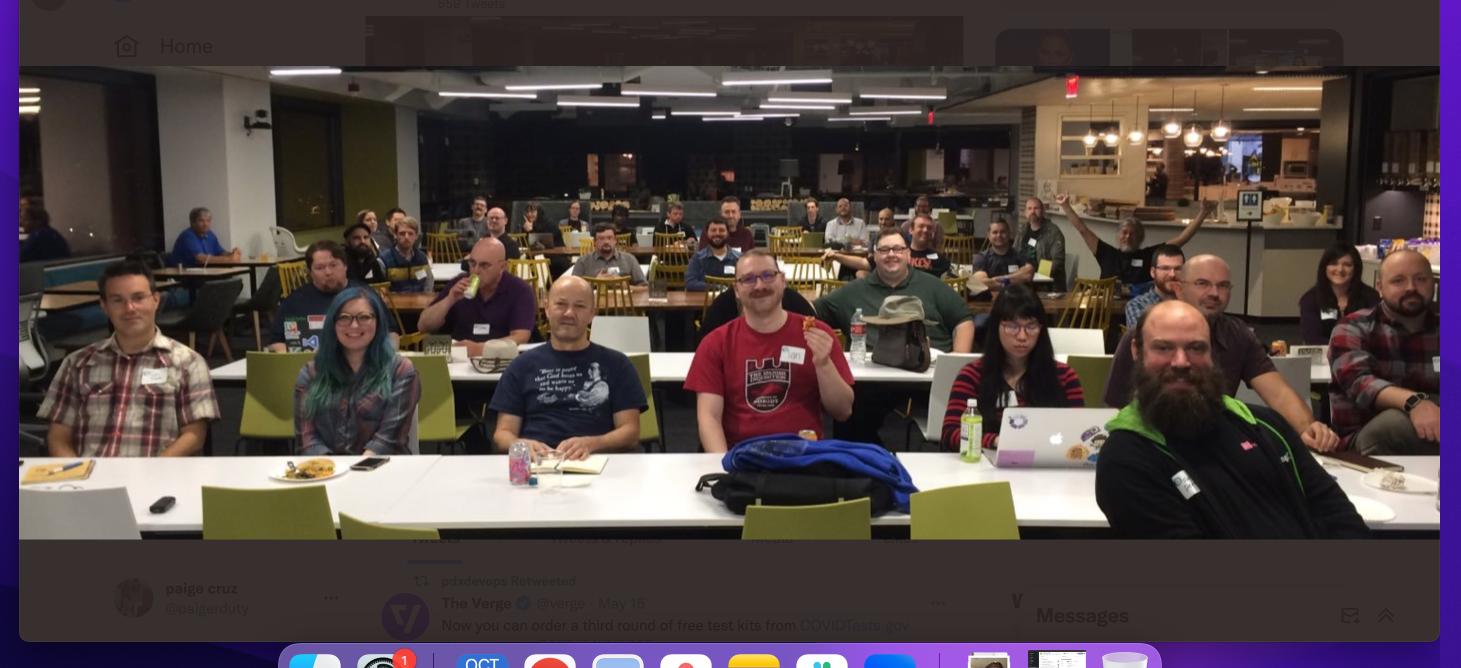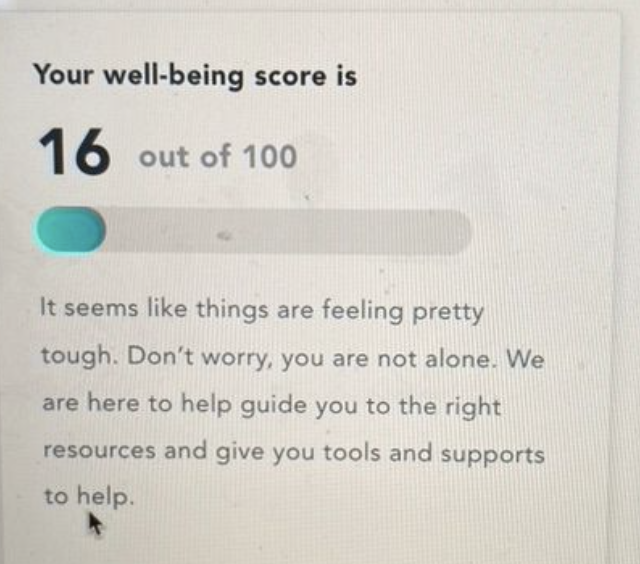🦙 Why I Retired from Site Reliability Engineering at 29 🦙

you read that right
retired
as in
withdrawn from one's position or occupation (Merriam Webster)
as in
i have made a conscious choice not to be an oncall software operations reliability engineer professionally *
hence, r-e-t-i-r-e-d

Let's start from the beginning...
It is Fall of 2016 and I have just graduated from Hackbright (HB) and am ready to code #AllTheThings. Look how proud I am of my app that is literally running on localhost!! Simpler times.

After graduating I spent 2 additional years at New Relic as a software engineer and soaked up the excellent culture of empathy and learning 🫶. I climbed from software engineer 1 -> 3, onboarded to oncall, and worked on everything from admin'ing JIRA to building the sales demo with disposable infra to working on the greenfield distributed tracing product. It was a whirlwind and
It didn't take long after leaving the cocoon of NR to realize that outside of hyperscalers and monitoring vendors.....most organizations don't spend their days intensely studying the art and science of monitoring distributed systems at scale. Which you know, fair! But it meant that instantly wherever I went I was "the monitoring expert" 😱
...
Aaand now we're going to fast-forward a bit here and gloss over my transition from software engineering (SWE) to site reliability engineering (SRE).

It is now 2021 and I have worked at a few startups, helmed some SEV-1s, succeeded and failed at effecting organizational change and migrated more things to the cloud and containers and k8s than I want to count. Oh the places I've been and the things I have seen!
Working in infrastructure / operations / """devops""" / sre during this period was s-t-r-e-s-s-f-u-l. Massive migrations to containers, the cloud, and later container orchestrators are not easy projects, they're the kind of project that is long-running, totes critical to the business functioning, cross-team, and I must confess such a slog.
From my limited vantage point I saw massive investments in the migration for infra and CI/CD (to an extent) but not the same energy poured into evolving:
- monitoring (aka notifying the right people at the right time of negative system impact based on known signals)
- developer education (it feels like I keep seeing in the field SRE as "application configuration experts for K8s" which imo is way underutilizing their skillset and hampers devs' ability to de-mystify production)
- oncall onboarding ("you write it, you run it" is uh...still a work in progress imo but it is no excuse for not having solid onboarding for oncall duties, touring the observability data, running through a mock incident, etc.)
- service documentation (tbh I don't quite have strong feelings about where this lives like a service catalog or READMEs but I do expect in a microservices remote distributed company to be able to pull down a repo and at least run it and the tests and have clear PR submission rules to follow without talking to anyone)
^ that work is sometimes invisible and so crucial because it supports the humans in the system today and for the future. I have never regretted spending a few days writing up local development docs, taking an afternoon to show someone around production, pairing on a dev's first PR to the K8s config. Never!
🔥🔥🔥 Burnout City: Population Me 🧯
Few among us would describe 2019-2021 as "the best years of their life" and I am certainly no exception.
During a particularly fraught project with a rapidly advancing deadline I was feeling stressed to the Nth degree and decided as a joke to take a "well-being exam" sent from some mental health app. And uh....I failed.

oh how I cackled at those results.
had I seriously taken to heart what it meant to fail a wellness exam perhaps I could see a long future enjoying a career in SRE but I forged ahead...taking a 6w mini break in the springtime to reset work-life boundaries and rest and build the sweet Land Rover Cruiser Lego set.
rinse and repeat and almost a year later I burned out ✨spectacularly✨. Unraveling during my last days pushing through a months-long migration serving as faux-manager, project lead, mentor and more believe me it was not pretty. This time instead of taking a break, the break took me.

It became clear that SRE, startups, and my boundaries with work were not sustainable. You'll notice I'm not digging into specifics here - imo I experienced average garden-variety IT burnout, this syndrome and the contributing factors aren't new to this field...
Five years later and Alice Goldfuss' Rockstars, Builders, & Janitors talk is as relevant as ever (sans Chef references) which to be honest is disappointing af.
watch if you need to understand why SRE/Ops folks experience burnout
Life After SRE
so where does a 29 year old retired SRE go?
within the tech industry I considered the following off-ramps (CLICK EACH ONE ITS A COOL THING CALLED NUTSHELL)
: technical writer
if you want to shift anything left please for the love of god shift writing the docs alll the way left. technical writing jobs felt too close to the toil of SRE and also I don't really know grammar so I disqualified myself from these roles
: sre /eng manager
after a couple stints as an interim manager foisted upon me + the random workstreams you get exposed to in a startup + my past life in PeopleOps + having manager friends I'm uh a-OK not being responsible for anyone but myself these days
: """devops""" engineer
tbh my hackles raise when I see DevOps Engineer and look I know we already lost that battle but still it says to me that the organization has not crumbled that Dev | Ops wall and are roles I steered clear of
: software engineer
this was the biggest shock tbh. apparently you cannot easily glide from SRE -> SWE. Multiple organizations rejected my resume despite me starting as a swe->sre OR actively pushed me to ops/infra during the interview process when I explicitly applied for SWE role. idk buyer beware of the SRE title so try before you buy
: sales engineer
Always be selling! (jk I know we're all about MEDDPICC these days 😛) I figured this would be a fun change of pace and I'd get to talk to lots of folks and be tuned into the business health of whatever company I was at. I still think SE and related Solutions Arch roles are in my future...
off course options
I also considered completely off course options like:
- 🌈 queer elopement planner / makeup artist
- 🎨 art therapist (it is an incredibly long ass road to becoming one and i am never going back to uni! you can't make me!!)
- 💁♀️ 4 day a week gig working the front desk at a nearby car dealership
- 🏬 Managing 1 location of a local craft art shop
- 📮 USPS deliverer (my mailman Dan has been selling me on the benefits (literally thx to the NACL union carriers get 2x a year COLA adjustments! plus I'd get hella muscular calves and befriend all the neighborhood kitties win-win-win.)
and that's simply a smol slice of what I pondered.
Tradeoffs
As the US interest rates kept getting hiked, gas prices went nutty and my "fuck you fund" was moving down and to the right so it was time to get serious about job hunting.
Taking a look at my skillset, areas of interest and expertise, and what industry I guessed would be able to ride out the choppy waters ahead I decided to forge ahead in the observability space but totally switch up roles and departments getting closer to customers and prospects.
Thus, my time at Chronosphere as a Senior Developer Advocate has begun. Why Chronosphere? You can read my Official Thoughts TM on the blog .
Cat Tax
Burnout is a serious issue and if you'd like to check your own risk here's a link to the free assessment from Yerbo or for some $$$ I'd recommend grabbing the official version from the Maslach of the original index here.
If you're new here, pls meet my charming cat Norman, who fulfills the cat tax around here

Keep up with me on Mastodon, Making App, here, or the Official TM Chronosphere blog
* and if I do happen to return at some point obviously some variables have changed and I am most definitely going to call it coming out of retirement
Member discussion